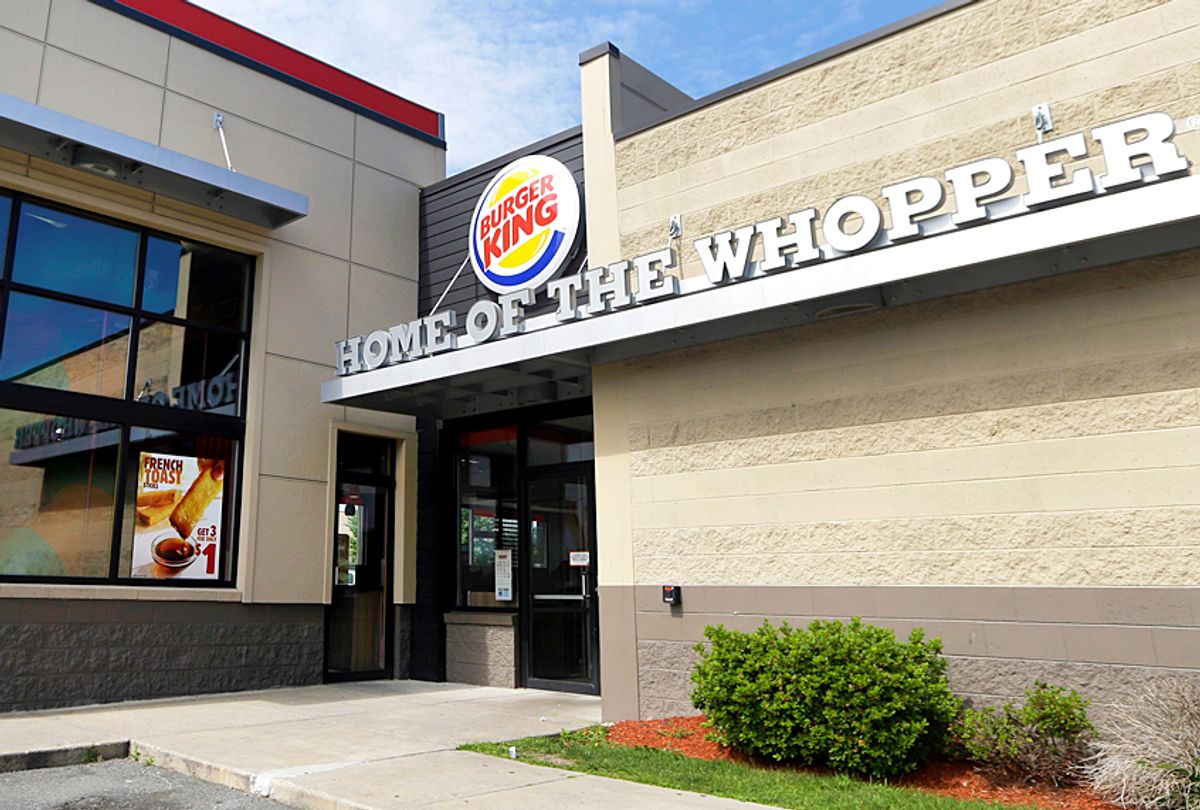Burger King released a new three-minute long commercial on Wednesday that attempted to explain the concept of net neutrality using their trademark burger, the Whopper, as a metaphor.
In the commercial, an unseen narrator polls people on the street for their thoughts on the net neutrality repeal. All three passers-by express uncertainty over what “net neutrality” means. The commercial then cuts to a Burger King interior where Whoppers are sold in tiered packages, modeling how Internet packages are sold in countries without net neutrality rules, like Portugal. Customers hoping to purchase a Whopper are told that they have to pay $26.99 for faster service, or pay less for a hamburger that takes much longer to arrive.
The scenes are filmed reality-TV style, and a title at the end explains that the customers are real people, not actors. Naturally, customers become increasingly aggrieved at the wait times and the inequity over whose Whopper gets delivered first.
“Burger King corporation believes that they can sell more and make more money selling chicken sandwiches and chicken fries, so now they’re slowing down the access to the Whopper” one of the employee-actors says.
Customers in the ad call the system a “bad dream” and “worst thing I’ve ever heard of.”
At the end, Burger King interviews the customers. Some admit surprise at how much they learned about net neutrality through their experience trying to buy a Whopper.
“A Whopper taught me about net neutrality. It’s stupid, but true,” one says.
“I didn’t think that ordering a Whopper would really open my eyes up to net neutrality,” says another customer.
It’s unclear which parts of the ad were staged and which ones weren’t, or whether more informed customers were edited out. Still, the ad exemplifies the degree to which many Americans are uninformed about internet access politics.
Net neutrality advocacy has been ongoing since the Obama administration passed an order that classified the Internet as a Title II entity under the Communications Acts. That move established restrictions for Internet providers that inhibited them from blocking content, accessing content, and throttling Internet content — meaning when Internet Service Providers intentionally slow (or speed) a specific Internet service. As President Obama explained a few years ago, “no service should be stuck in a 'slow lane' because it does not pay a fee.”
Once incumbent President Donald Trump appointed Ajit Pai as the chairman of the Federal Communications Commission (FCC), which has regulatory power over communication media like the internet, Pai made it the FCC’s priority to reverse Obama’s net neutrality rules. In his proposal, net neutrality regulations would essentially become obsolete. The vote passed to repeal them 3-2 along party lines on Dec. 14.
The FCC net neutrality vote wasn’t open to the public, and indeed, it is not too late to demand a reversal of the repeal. Thus, Burger King points its viewers to a Change.org petition at the end of commercial. Likewise, some state officials are taking a strong stance against the FCC’s vote, like New York Governor Andrew Cuomo.
The current Trump-era FCC pushed an anti–net neutrality agenda from the beginning, despite widespread (and ongoing) public opposition to repealing net neutrality. Commissioner Pai made a video that purported to “explain net neutrality” in December. The video, which was widely derided as condescending and insulting to the American public, poked fun at Millennials and typified them as ignorant, while highlighting how Internet users would still be able to “[Insta]gram their food” and “stay part of their favorite fandom.” It was also released on the day of the vote. Pai's video didn’t explain how repealing net neutrality would change Internet pricing packages, mention throttling, or any of the real concerns experts had been raising before the vote.
It is odd that Burger King of all companies is engaged in educating the public on what net neutrality is, and the implications of the December FCC vote. But if the government isn’t going to take activists' concerns seriously, at least somebody else is — even if that somebody is the marketing team of a major fast food chain.



Shares